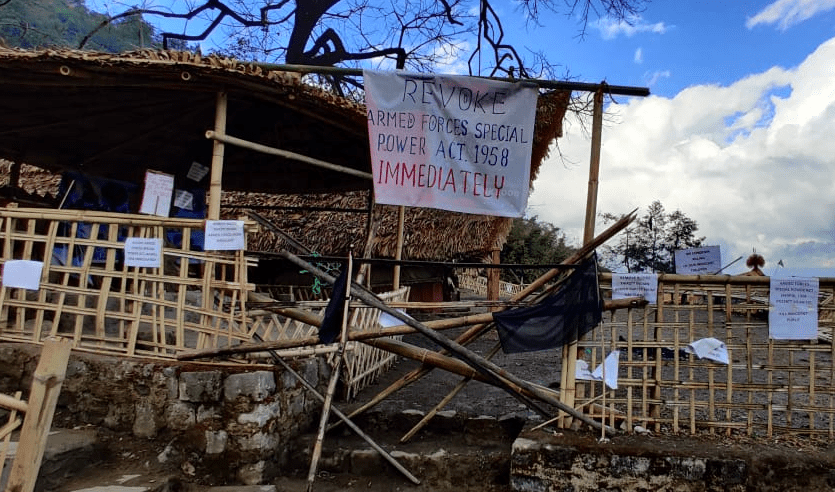
The killing of 14 civilians by Indian security forces in Nagaland highlights the need for the Union government to immediately repeal the draconian Armed Forces Special Powers Act, Human Rights Watch said on Wednesday.
The AFSPA gives armed forces deployed in internal conflicts broad powers to use lethal force and provides soldiers with effective immunity from prosecution, said the rights group.
On Saturday, army men from the 21 Para Special Forces unit shot and killed six coal miners in Nagaland’s Mon district, saying the soldiers mistook the miners for militants. The deaths led to massive protests of local villagers against troops, killing seven more civilians in the army’s open firing. A day later, the Assam Rifles army unit killed another person after protesters attacked their camp.
“Pledges by India’s home minister and the army to investigate the army’s horrific killing of 14 people will come to nothing unless those responsible are prosecuted,” said Meenakshi Ganguly, South Asia director at Human Rights Watch.
“So long as the Armed Forces Special Powers Act protects soldiers from accountability, such atrocities will continue,” she said.
Following the killings, the chief ministers of Nagaland and neighboring Meghalaya state, both allied to the Bharatiya Janata Party-led Union government, called for the repeal of AFSPA, as did opposition politicians, human rights activists, and affected residents.
The AFSPA, enacted in 1958 as a short-term measure to allow deployment of the army to counter an armed separatist movement in the Naga Hills, has now been in force for over 60 years. In addition to Nagaland, it is currently used in Manipur, Assam, and parts of Arunachal Pradesh and Jammu and Kashmir.
The AFSPA gives the armed forces wide powers to shoot to kill, make arrests on flimsy pretexts, conduct warrantless searches, and demolish structures in the name of “aiding civil power,” Human Rights Watch said.
The powers that the law extends to the armed forces come into force once an area subject to the act has been declared “disturbed” by the Union or state government. This declaration is not subject to judicial review.
Several reports of human rights groups found that equipped with these special powers, soldiers have raped, tortured, forcibly disappeared, and killed people without fear of being held accountable in these regions.
The act violates international human rights law protections, including the right to life, the right to be protected from arbitrary arrest and detention, and the right to be free from torture and cruel, inhuman, or degrading treatment. It also denies the victims and their families the right to a remedy.
Several government-appointed commissions in India have recommended repealing the law. Several United Nations human rights bodies have also called for the repeal of the law. A 2019 report on Jammu and Kashmir by the Office of the United Nations High Commissioner for Human Rights noted that the AFSPA “remains a key obstacle to accountability.”
“AFSPA has long shielded the armed forces from responsibility for grave human rights abuses and denied justice to the families harmed,” Ganguly said. “The government should ensure an independent civilian investigation into the Nagaland killings and urgently repeal AFSPA to save many more lives.”
Union Home Minister, Amit Shah, expressed regret over the incident and said a Special Investigation Team will investigate it. However, Shah did not clarify in parliament whether the Union government will give permission to prosecute those found responsible.
The army also expressed regret over the incident and set up a court of inquiry to investigate.
Nagaland police filed a First Information Report saying that the soldiers had not made a requisition to the police station to provide a police guide for their counterinsurgency operation and thus, “it is obvious that that the intention of the security forces is to murder and injure civilians.”



